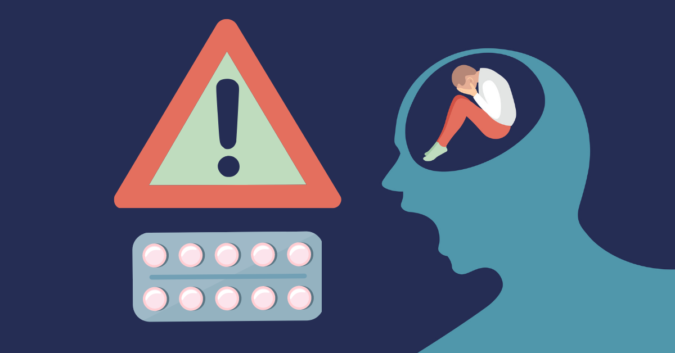Prescribed to treat allergies and asthma, montelukast — commonly sold under the brand name Singulair® — has been making headlines in recent months as more and more patients step forward to allege the prescription drug caused unexpected and often harmful mental health side effects. Even worse, such side effects can be especially severe in children.
An uptick in Singulair lawsuits has followed a March 2020 move by the U.S. Food and Drug Administration (FDA), in which the agency announced it would be adding a black boxed warning label — the agency’s strongest warning label — to the drug, warning patients of severe neuropsychiatric injuries including anxiety, depression, and suicidal thoughts and actions.
The agency’s decision to upgrade the label was reached after it reviewed all available medical literature on Singulair and convened a panel of outside experts to discuss the matter. In addition, the FDA has recommended that health care providers only consider prescribing Singulair to hay fever patients for whom other allergy medications have proven ineffective.
Singulair Lawsuits Allege Severe Mental Health Injuries
Originally approved by the FDA in 1998 to primarily treat and prevent asthma attacks in children and adults, as many as 9.3 million patients had prescriptions for Singulair (and its generics) filled in 2018 alone (the latest year for which statistics are available). According to data from the FDA, roughly 2.3 million of these prescriptions were for children under the age of 17-years-old.
Despite the drug’s relative popularity, problems associated with the drug date back to at least 2008 when the FDA first investigated “a possible association between the use of Singulair and behavioral/mood changes, including suicidality (suicidal thinking and behavior) and suicide.”
Following its 2008 investigation, the FDA announced it would be including additional information about risks for neuropsychiatric side effects on the drug warning label.
Potential Neuropsychiatric Side Effects of Singulair
In addition to increased reports of depression, anxiety, and suicidal ideation, other reported injuries include:
- Agitation, aggressive behavior, and hostility
- Attention problems
- Bad or vivid dreams
- Disorientation or confusion
- Hallucinations
- Insomnia
- Memory problems
- Obsessive-compulsive symptoms
- Stuttering
- Tics and tremors
- Uncontrolled muscle movements
As a result of these unexpected and severe side effects, at least 14 Singulair lawsuits have been filed since August 2020.
Get Help Filing a Singulair Lawsuit
According to a report by Healthline, the FDA’s decision to include its most prominent boxed warning label on Singulair (and its generics) is a move many health advocates and organizations have been pushing for — the Allergy and Asthma Network (AAN) chief among them.
In a statement to Healthline, AAN President and CEO Tonya Winders said,
“AAN has reports of thousands of families impacted by the neuropsychiatric side effects of Singulair/montelukast.”
If you suffered from anxiety and/or depression — or if a loved one committed suicide — after taking Singulair, you may be eligible for compensation through a Singulair lawsuit.
Over the last 45+ years, Sokolove Law has secured more than $1.6 Billion on behalf of our clients from dangerous drug and medical device lawsuits.
Get a free case review today to learn more about your potential legal options.
All brands are trademarks of their respective companies.
